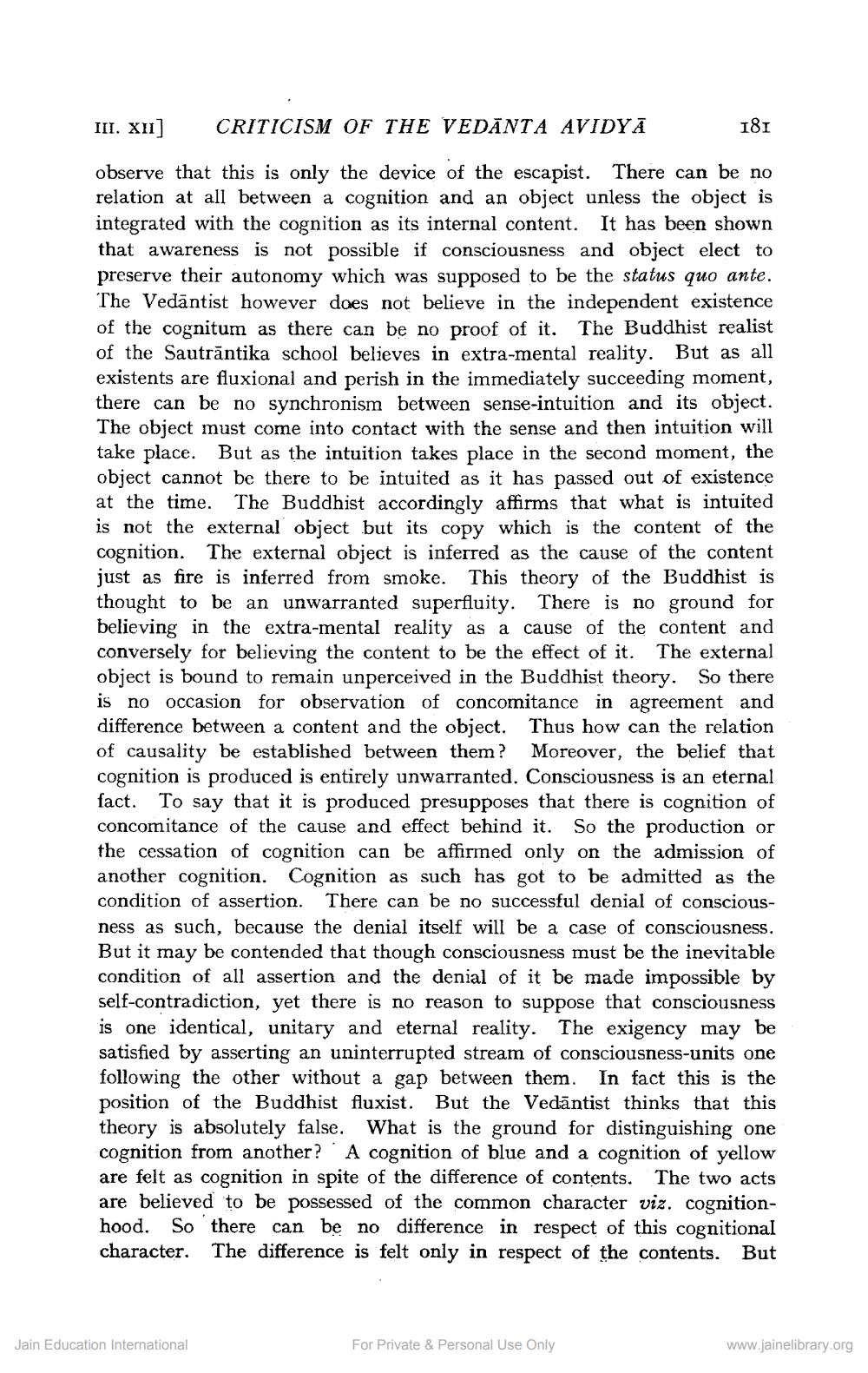________________
III. Xu]
CRITICISM OF THE VEDĀNTA AVIDYA
181
observe that this is only the device of the escapist. There can be no relation at all between a cognition and an object unless the object is integrated with the cognition as its internal content. It has been shown that awareness is not possible if consciousness and object elect to preserve their autonomy which was supposed to be the status quo ante. The Vedāntist however does not believe in the independent existence of the cognitum as there can be no proof of it. The Buddhist realist of the Sautrāntika school believes in extra-mental reality. But as all existents are fluxional and perish in the immediately succeeding moment, there can be no synchronism between sense-intuition and its object. The object must come into contact with the sense and then intuition will take place. But as the intuition takes place in the second moment, the object cannot be there to be intuited as it has passed out of existence at the time. The Buddhist accordingly affirms that what is intuited is not the external object but its copy which is the content of the cognition. The external object is inferred as the cause of the content just as fire is inferred from smoke. This theory of the Buddhist is
ght to be an unwarranted superfluity. There is no ground for believing in the extra-mental reality as a cause of the content and conversely for believing the content to be the effect of it. The external object is bound to remain unperceived in the Buddhist theory. So there is no occasion for observation of concomitance in agreement and difference between a content and the object. Thus how can the relation of causality be established between them? Moreover, the belief that cognition is produced is entirely unwarranted. Consciousness is an eternal fact. To say that it is produced presupposes that there is cognition of concomitance of the cause and effect behind it. So the production or the cessation of cognition can be affirmed only on the admission of another cognition. Cognition as such has got to be admitted as the condition of assertion. There can be no successful denial of consciousness as such, because the denial itself will be a case of consciousness. But it may be contended that though consciousness must be the inevitable condition of all assertion and the denial of it be made impossible by self-contradiction, yet there is no reason to suppose that consciousness is one identical, unitary and eternal reality. The exigency may be satisfied by asserting an uninterrupted stream of consciousness-units one following the other without a gap between them. In fact this is the position of the Buddhist fluxist. But the Vedāntist thinks that this theory is absolutely false. What is the ground for distinguishing one cognition from another? A cognition of blue and a cognition of yellow are felt as cognition in spite of the difference of contents. The two acts are believed to be possessed of the common character viz. cognitionhood. So there can be no difference in respect of this cognitional character. The difference is felt only in respect of the contents. But
Jain Education International
For Private & Personal Use Only
www.jainelibrary.org




